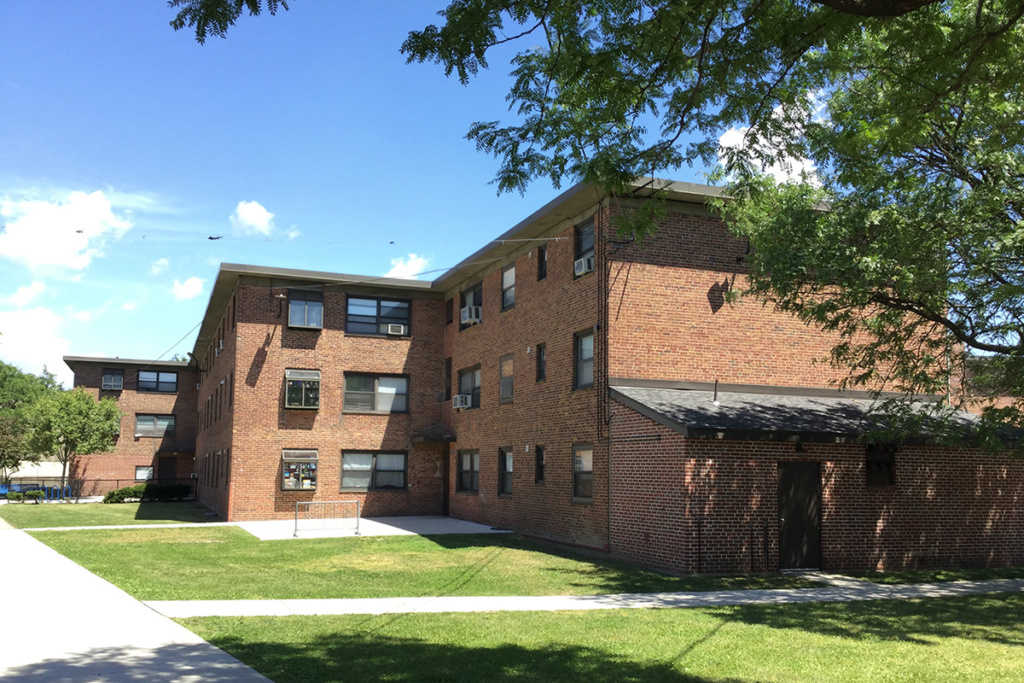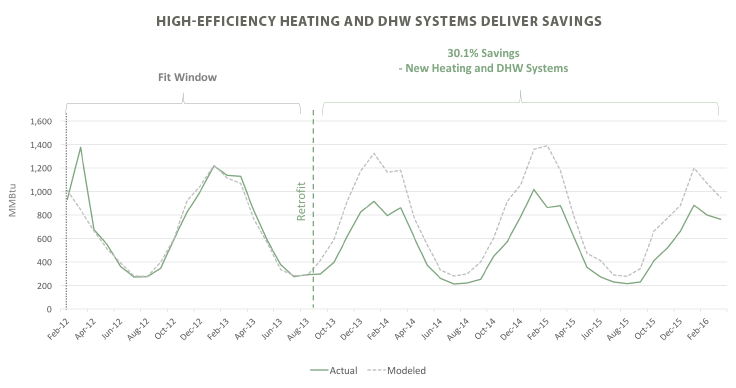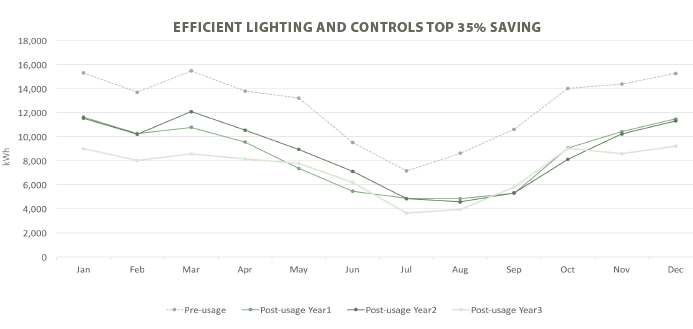106 apartments; four three-story buildings; 66,000 SF; built in 1952
Owned and managed by the Chelsea Housing Authority
Chelsea, MA
The Massachusetts Green Retrofit Initiative (MAGRI) is a project of New Ecology, Inc. (NEI) and LISC Boston. Through MAGRI, NEI and LISC Boston serve as a one-stop-shop to provide holistic energy management services to property owners. This project has been funded by the Barr Foundation and a U.S. Department of Housing and Urban Development Energy Innovation Fund grant.
Squeeze Every BTU Out of Your Retrofit

The Chelsea Housing Authority (CHA) contracted NEI to perform customized energy and water audits of three public housing developments to identify utility performance improvements and to detail policies and procedures to create healthier living environments for residents. At Scrivano Apartments, NEI uncovered multiple opportunities for energy efficiency upgrades and outlined a path forward. The timing worked out well as shortly after completing this work, NEI and LISC Boston launched MAGRI, and CHA readily leveraged this opportunity and began implementing NEI’s recommendations with funding from Massachusetts’ low-income utility efficiency program and technical assistance from MAGRI.
NEI recommended a suite of improvements that fell within the utility efficiency program offerings, including air-sealing and repairs to the insulation in wet crawl spaces; replacing atmospheric heating and domestic hot water boilers and indirect water heaters in each building with high-efficiency modulating, condensing boilers and new storage tanks; and upgrading the common area and exterior lighting.
Through MAGRI, NEI acted as the owner’s representative by shepherding CHA’s application to the utility efficiency program and accompanying the utility program staff to assure maximum benefit. During construction, NEI worked collaboratively with CHA staff and the installation contractor to ensure that the inevitable hiccups were addressed quickly, that the equipment was installed properly, and that all parties’ expectations were satisfied. For example, NEI worked with the contractor to establish efficient boiler settings and to relocate the outdoor temperature sensors and combustion exhaust venting. NEI also noted that while the utility program contractors addressed interior lighting, the exterior lighting had been overlooked. NEI then facilitated additional funding to convert the metal halide fixtures to LEDs.
Through MAGRI, NEI and LISC Boston helped CHA secure $463,565 from the utility efficiency program for Scrivano Apartments, which decreased electricity and gas use by 35.2 and 30.1 percent, respectively, and reduced the annual operating expenses by $29,223.




